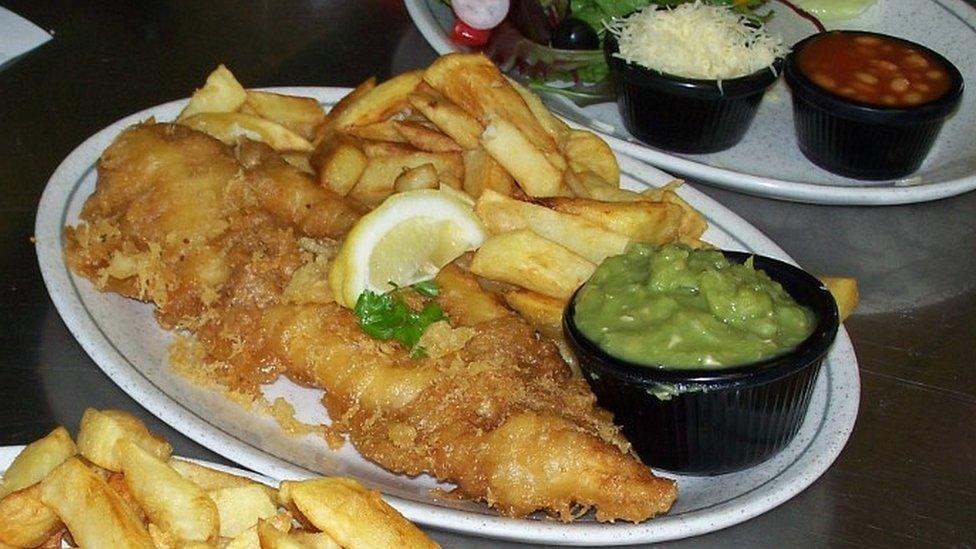Cost of living: Chip shops battered by price of fish
- Published
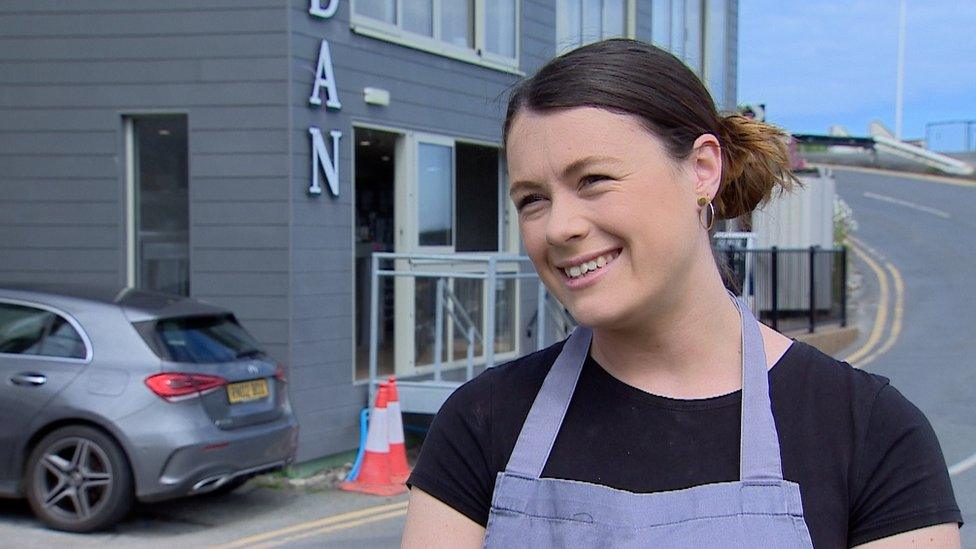
Erin Morgan said the price of cod for her restaurant had gone up 50%, but she did not want to pass the cost on to customers
It is one of Britain's favourite dishes, but there are fears the future of fish and chips could be at risk due to rising costs.
In some Welsh seaside resorts the price of cod and chips has risen to £12.
Erin Morgan runs a restaurant in Ceredigion and said she feared the increase in price would see customers stay away.
The UK government said it supported the hospitality sector through the pandemic with a multi-million pound package.
Ms Morgan, who has been running Caffi Sgadan in Aberporth, Ceredigion, for the last two years, said she was having to shoulder much of the rising cost, as she did not want to put prices up by 50%.
"It's worrying, the price of everything is going up," she said, adding cooking oil and other kitchen expenses had also risen along with the fish.
"If we carry on seeing these price rises, we'll have to reassess how we run the business," she said.
White fish, potatoes, peas and the energy to cook them with have all sky-rocketed in price.
The cost of a large portion of cod and chips at her shop has risen from £7.40 at the start of the year to £7.90 this week.
But in some areas of Wales, it can be as much as £12.
Gareth Morgan and his family are just trying to hang on at the Pendre Cafe, the business they run in Cardigan.
"Where as you'd have a regular visit two or three times a week possibly, you see them now twice a month possibly."
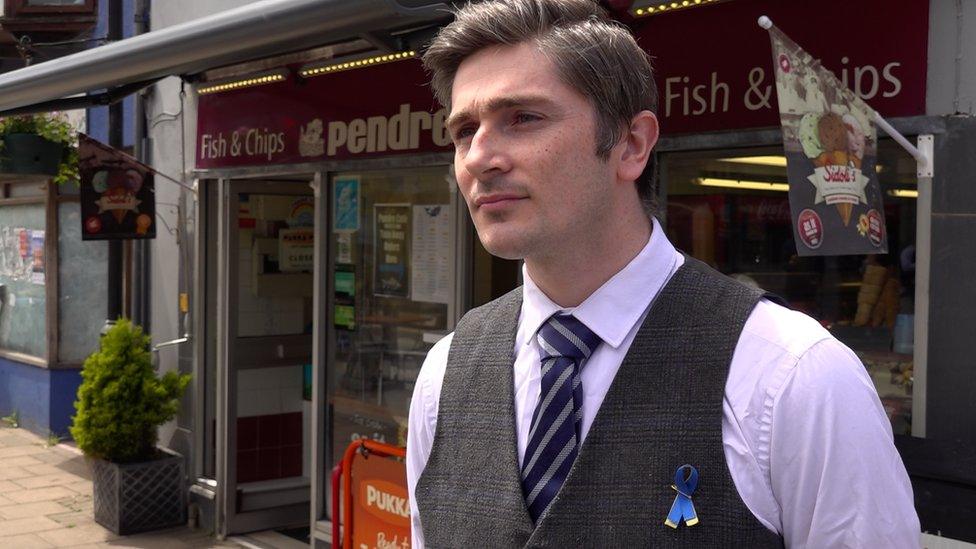
Gareth Morgan said his regular customers were visiting less frequently
One option was to sell cheaper unskinned fish.
Mr Morgan said: "We're trying not to pass the cost on to customers, but eventually, prices will have to go up again."
'It's more of a treat now'
Jo Davies, visiting Aberporth from the Midlands, decided to go for a pie at Caffi Sgadan, because the cod was too pricey.
She said: "I would have had fish, definitely, but it's too expensive. It's more of a treat than a normal dinner time meal now. It's not an option."
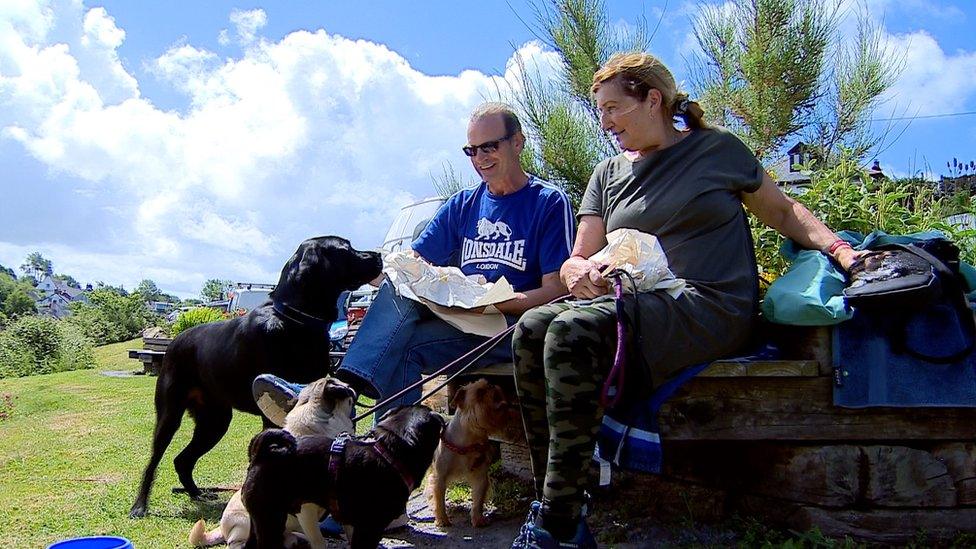
Chip shop customer Jo Davies, right, bought a pie because the cod was too pricey
National Federation of Fish Friers president, Andrew Crook, said the industry was facing a crisis caused by Russia's invasion of Ukraine.
From rising energy and fuel costs to cooking oil and fish, prices have spiralled.
Mr Crook, who runs his own chip shop in Euxton, Lancashire, has visited Alesund, Norway, to find ways to mitigate the problems.
"I've seen the price of cooking oils more than double," he said.
"That's due to the conflict in Ukraine. With fish, we're already seeing post-pandemic inflation. The cost of fuel also affects it.
"And we're expecting tariffs to be applied to Russian whitefish of 35%, which will certainly impact our industry."
Russia is one of the planet's largest seafood producers.
Some countries rely on its white fish.
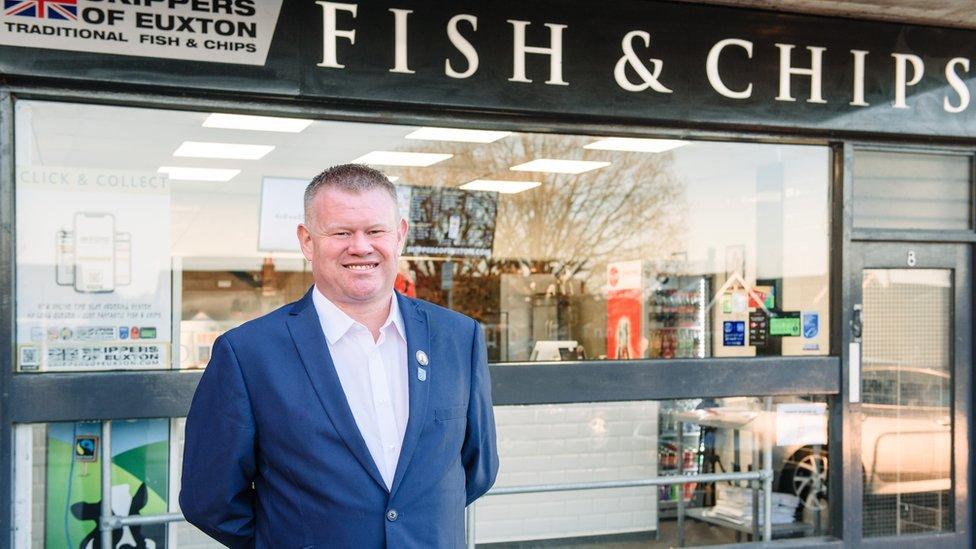
Expert Andrew Crook said the industry was facing a crisis caused by Russia's invasion of Ukraine
Mr Crook wants to increase stocks in other markets, starting with Norway.
"Most vessel owners in Norway produce headed and gutted fish that then goes on for further processing. It's cheaper than producing fillets," he said.
"But with prices going up, it might now stack up for them to switch over to fillets that could provide some solutions to our issues. If there's more fish available to is, shortly it will help mitigate the price increases in the future."
With VAT returning to 20% in April, Mr Crooks is calling on the UK government to step in.
"We need a rethink on how we're taxed," he said.
"It's a very bleak outlook, it's going to be very tough on a lot of businesses.
"It all means we don't have the money to invest, and provide good jobs. It's going to put a lot of businesses out of business."
The UK government said a £1,000 increase to the Employment Allowance had been announced in the Spring Statement, which would cut takes for businesses.
"Eligible high street businesses can also get 50% off business rates bills, and benefit from a freeze to the business rates multiplier that puts the brakes on bill increases and is worth £4.6 billion over the next five years," they said.
"We've always been clear that the lower rate of VAT was a temporary measure and it's right our support reflects the fact the economy has reopened."


Related topics
- Published17 March 2022
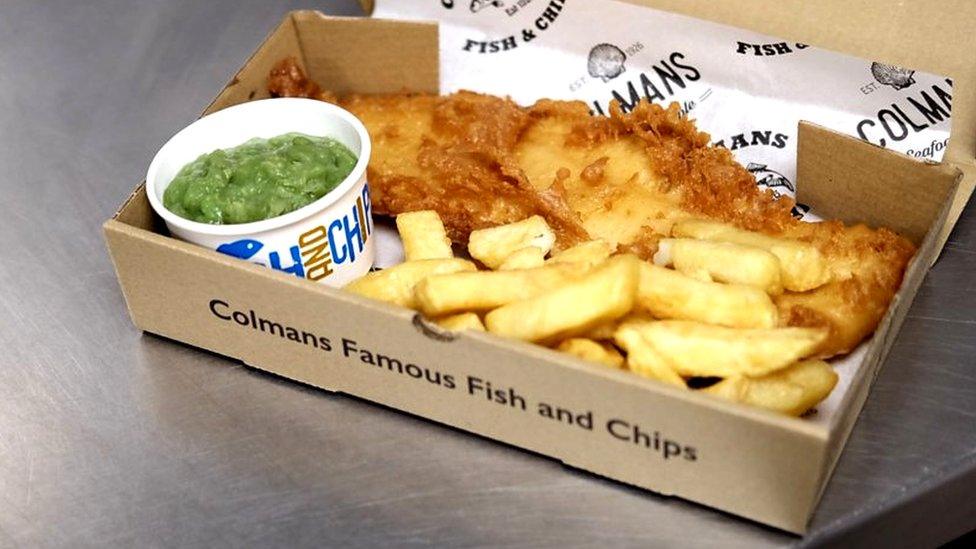
- Published29 April 2021
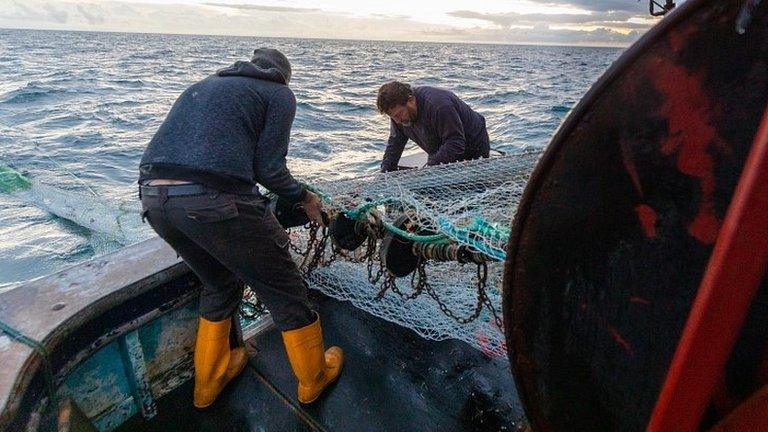
- Published8 June 2016
